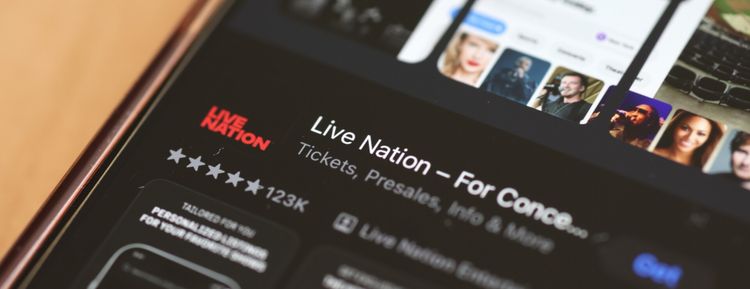DOJ Throwing Late Grenade at Ticketmaster Merger Could Backfire

As both an avid fan of live music and an antitrust attorney, I have a keen interest in the Department of Justice’s May 23 lawsuit to break up Live Nation and Ticketmaster.
On the face of it, Live Nation Entertainment Inc.'s case seems attractive for the DOJ. It furthers the Biden administration’s commitment to challenge single-company conduct, with the company here having strong positions in both ticketing and concert promotion. Maybe more important, it responds to widespread angst from customers, artists, and Capitol Hill about ticket prices and the quality of the technology for ticket delivery. (Just ask your average Swiftie about the latter.)
But cases with this kind of theory—exclusionary conduct stemming from vertical integration—can be challenging. Among other things, Live Nation will point to the consumer benefits that come from having Ticketmaster and Live Nation under the same roof, and the DOJ will be put to a proof test regarding the level of actual coercion that occurred.
Live Nation also appears poised to argue that competition is robust and growing, and that others in the industry are the cause of any high ticket prices or fees. And although the complaint is fairly well-crafted, it seems light on hard evidence of exclusionary conduct, especially given the length of time Live Nation has been under the microscope.
While stronger evidence could surface over time, one has to assume the DOJ was incentivized to put forth its strongest case at this early juncture.
Why? For one, the Obama administration in 2010 approved the merger, and the Biden administration now seeks to reverse course. Because the DOJ was quick to explain in the May 23 press conference that the conduct at issue is broader than the merger, one would think they would break out the best ammo to support that contention.
Challenging a previously blessed deal such as this (as the Federal Trade commission did with the Facebook/Instagram merger) invites criticism over fundamental fairness and efficient corporate planning. It’s awfully hard for merging parties to intertwine assets and strategies knowing they could later be torn apart. Perhaps this is what the DOJ wants—deterring some deals before they leave the boardroom.
While this issue looms large, so does the question of whether breaking apart the company is the best outcome, even if the DOJ proves its case. Vertical integration can offer benefits by eliminating the friction of dealing with multiple companies. For instance, artists would have to deal with a different combination of promoters, venues, ticket vendors, and other vendors for each show along a tour.
This could result in potential mishaps, confusion, variable levels of service, different audience experiences, and increased transaction costs that artists and fans would prefer to avoid. A vertical merger can also lower costs to consumers by reducing the two profits that separate companies take to one.
The DOJ has plenty of tools at its disposal, including stronger policing and deterrence mechanisms, if current efforts have fallen short. Throwing a grenade on a merger to enforce the antitrust laws may prove to go too far.
I hope this action leads to the best for this industry. But I fear that by choosing the most radical antitrust remedy available, the noise will interrupt the music.
The case is US v. Live Nation Entertainment Inc., S.D.N.Y., 24-cv-03973, filed 5/23/24.
This article does not necessarily reflect the opinion of Bloomberg Industry Group, Inc., the publisher of Bloomberg Law and Bloomberg Tax, or its owners.
Author InformationCraig Waldman co-chairs Jones Day’s global antitrust and competition law and tech practices.
These are personal views or opinions of the author; they do not necessarily reflect views or opinions of Jones Day.
Write for Us: Author Guidelines









































